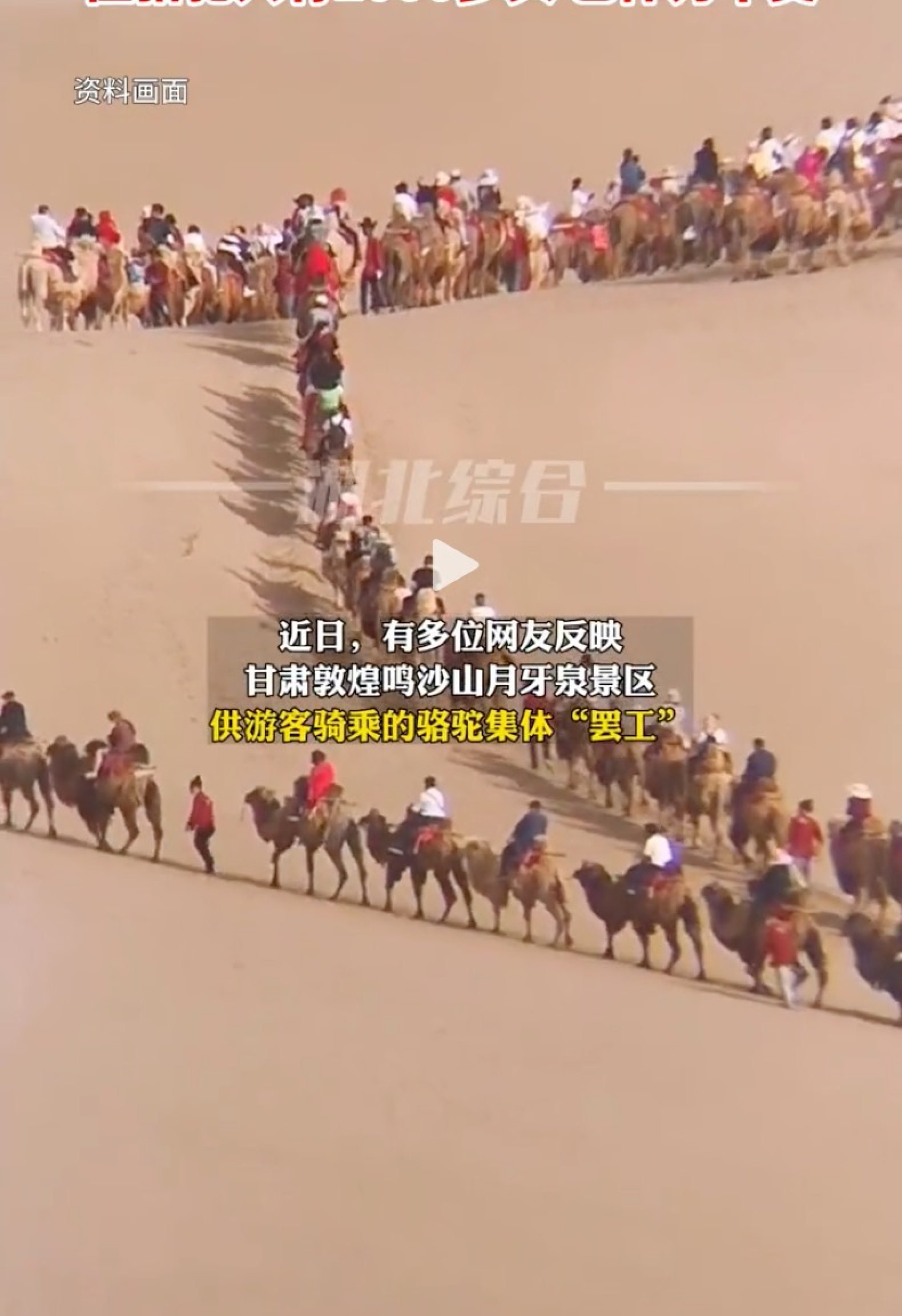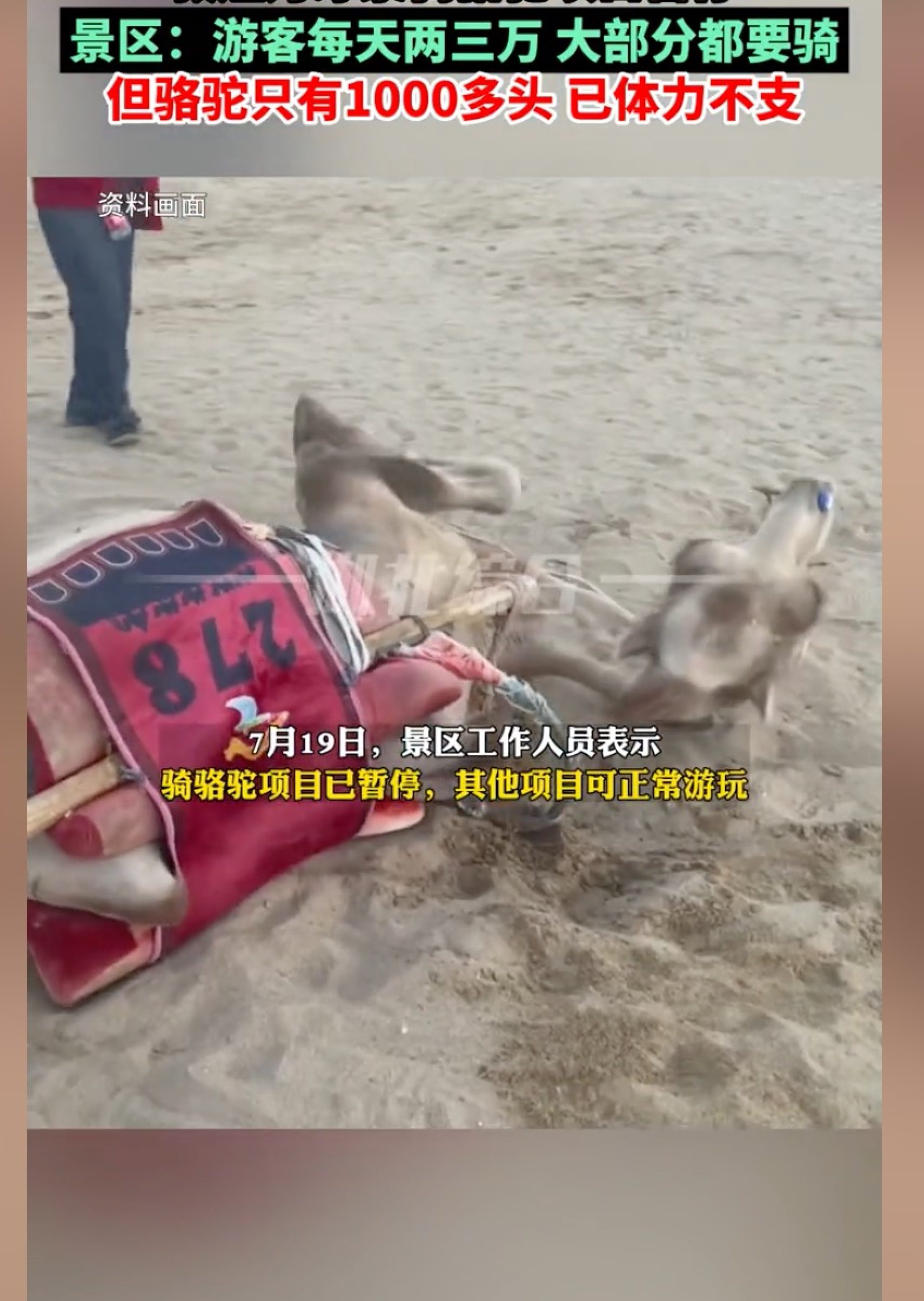A famous Silk Road site in China is under fire after footage showed camels used for tourist rides unable to stand and crying in pain while being dragged across the sand by staff appeared online.
The distressing footage of the camels was filmed at Mingsha Mountain in Dunhuang in Gansu province, northwestern China, and was posted online earlier this month.
It has raised public concerns the animals are being overworked providing camel rides to tourists. However, reports that some camels have died as a result have been denied by authorities, news site The Paper reported.
Do you have questions about the biggest topics and trends from around the world? Get the answers with SCMP Knowledge, our new platform of curated content with explainers, FAQs, analyses and infographics brought to you by our award-winning team.
The suspension of camel rides at the site on July 18 caused further alarm, with some people online expressing dark humour in jokes about camels “on strike”.
“Even the camels are tools for making money. Please care and love them. They are also living things,” one commented on mainland social media.

“The weather is very hot, and camels will probably get heatstroke. Please be kind to those animal friends,” another person said.
Apart from laws protecting wild animals, China has no legislation in place to safeguard the rights of other animals like domestic pets, farm animals, those in zoos or working at tour sites.
An anonymous official from the tour site said camel rides were briefly on hold for a day from July 18 to allow cleaning of the camels’ route up the mountain.
“There are many camel faeces left on the road. Since it is extremely hot at the moment, the road stinks. So we need to clean up the faeces,” the official told The Paper.
The official admitted that this also allowed the camels to rest as some were weak from carrying too many tourists.
“We’ve received an extremely high number of tourists this summer. Around 20,000 to 30,000 tourists visited the site, and almost every one of them hoped to ride a camel, but there are only 1,000 camels available here,” the official said.
On July 21, Dunhuang Cultural and Tourism Bureau denied the claims that some camels had died, saying no animals had died from exhaustion and that an investigation into the video footage had not revealed any abuse.
“According to our investigation, the camels whined not because they were tired or abused, but because they did not feel comfortable due to the nose string that workers used to lead the camels,” the bureau’s statement said.
It added that to avoid times of the day when temperatures are too high, the camels work from 7am to 10am and from 5pm to 9pm.

The camel-riding service on the Mingsha Mountain costs 100 yuan (US$14) per person and takes tourists over the sand mountain for one hour.
At times there have been so many tourists at the site that traffic jams of camels have occurred where the animals have to queue up along the path and wait.
Dunhuang is considered an important historical site along the ancient Silk Road trade route and is a popular tourist destination in northwestern China. Besides Mingsha Mountain, it includes the Mogao Caves, which include grottoes housing a treasure trove of ancient Chinese architecture, sculptures and paintings.
More from South China Morning Post:
- What are the odds? Hong Kong woman has iPhone 14 Pro stolen by taxi driver, encounters same car with new cabby days later
- Life-saving cosplay princess: costumed medic in China who rushed to aid man passed out on street wins ‘legend’ title online
- ‘Fun and heartwarming’: man in China hands pain-stricken wife US$14 for each step on road to recovery from caesarean birth, delights social media
- ‘Baby’s face is red and swollen’: Chinese man self-films slapping attack on infant son, sends video to estranged mother in sick bid to get her back
- ‘Transporting idiots’: fury over ‘trash-talking’ flight attendant with China’s largest budget airline who posted online insults about passengers
For the latest news from the South China Morning Post download our mobile app. Copyright 2023.





